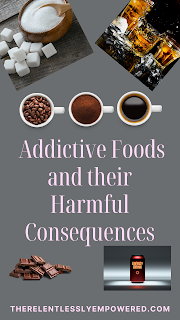One popular weight loss supplement available in the market today is slimming tea. Stores all over sell slimming tea, dieter's tea and others but all of them are actually the same. They may appear to be effective, but what is not seen may actually harm you.
One of the effects of drinking dieter's tea is frequent bowel movement. This gives people the feeling of body cleansing. These people may get toxins out of their body, but it isn't exactly the only thing that slimming tea actually does to the body. Slimming tea contains herbs which are natural laxatives. These include aloe, senna, rhubarb root, cascara, buckthorn and castor oil. These are products which are derived from plants and have been used since ancient times because of their potency in treating constipation and inducing bowel movement.
Cascara, castor oil and senna are substances which are recognized as laxatives available over the counter and are also regulated as drugs. Scientific studies show that diarrhea induced by laxatives does not absorb significant amounts of calories taken in the body. The reason for this is that laxatives do not act on the small intestines where most of the calories are absorbed. Instead, they work on the large intestines. If taken in large amounts for prolonged periods, it can affect fat absorption of the body. This may lead to greasy diarrhea and loss of weight.
Abuse of laxatives is common practice among people who suffer from bulimia and anorexia nervosa. While weight loss can be guaranteed by overdosing on laxatives, it may also cause permanent damage to the gastrointestinal tract and the weakening and softening of the bones, a condition known as osteomalacia. Drinkers of slimming teas may actually patronize the product because they are less expensive, and taste better than other laxatives sold in the market. Other people, such as those with eating disorders like bulimia and anorexia nervosa drink slimming tea because they work fast and produce watery stool and have loose consistency.
Women may even be more susceptible to the effects of slimming teas. Although they may not be known to interfere directly with the woman's menstrual cycle and fertility, they should proceed with caution if drinking them causes them to rapidly shed off weight. Pregnant women should never take laxatives of any kind. Wise and responsible herbalists also discourage the use of senna and other herbal products with laxative properties for pregnant women as well as women who are trying to conceive.
The labeling of slimming teas in the market today can also be misleading. For instance, they commonly refer to the laxative qualities as, 'natural bowel cleansing properties' ' and not specifically use the word "laxative". Some even use the term "low-calorie" on their labeling. These products, in fact, contain essentially no calories or nutrients whatsoever, unless they are sweetened.
Adverse effects of misusing laxatives in the form of slimming tea generally occur when taken in more than or longer than recommended. These include nausea, stomach cramps, vomiting, diarrhea, fainting, rectal bleeding, electrolyte disorder and dehydration as well as injury and worse, death. It was also reported that excess use of stimulant laxatives causes severe constipation and pain for long periods (as much as for decades) due to the colon losing its function. It eventually led to surgery removing the colon altogether.
For an eating plan that not only keeps you regular but also helps you lose weight in a safe and healthy way, click here.


.png)

.png)
.png)
.png)